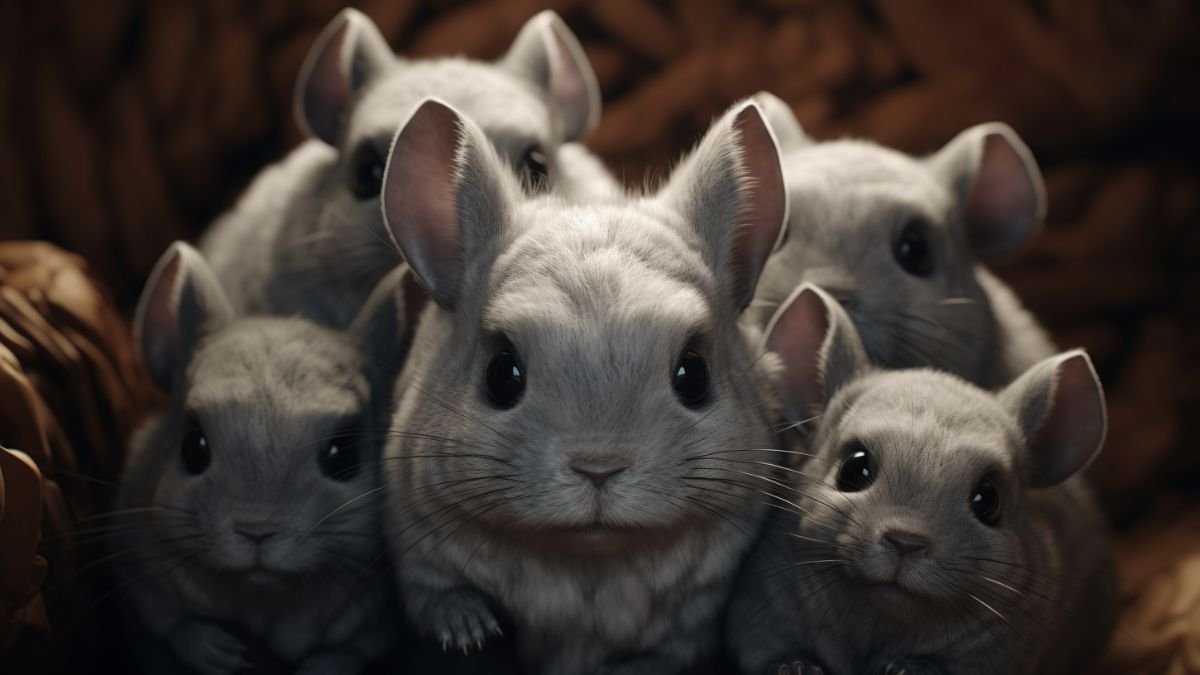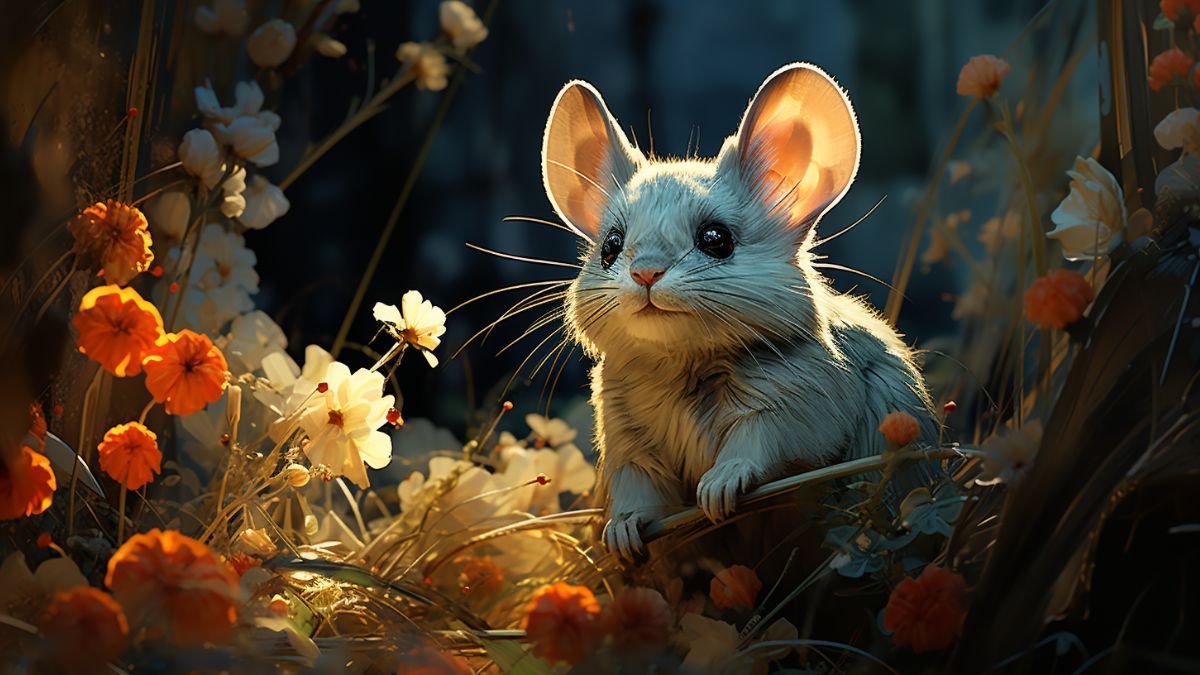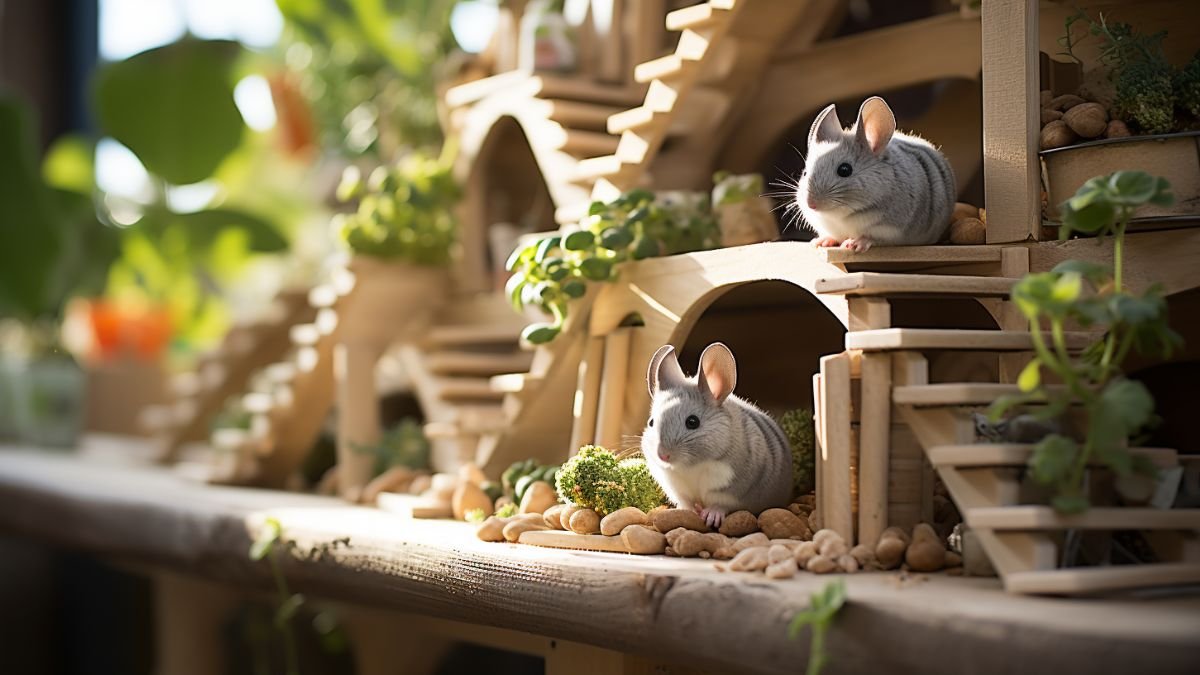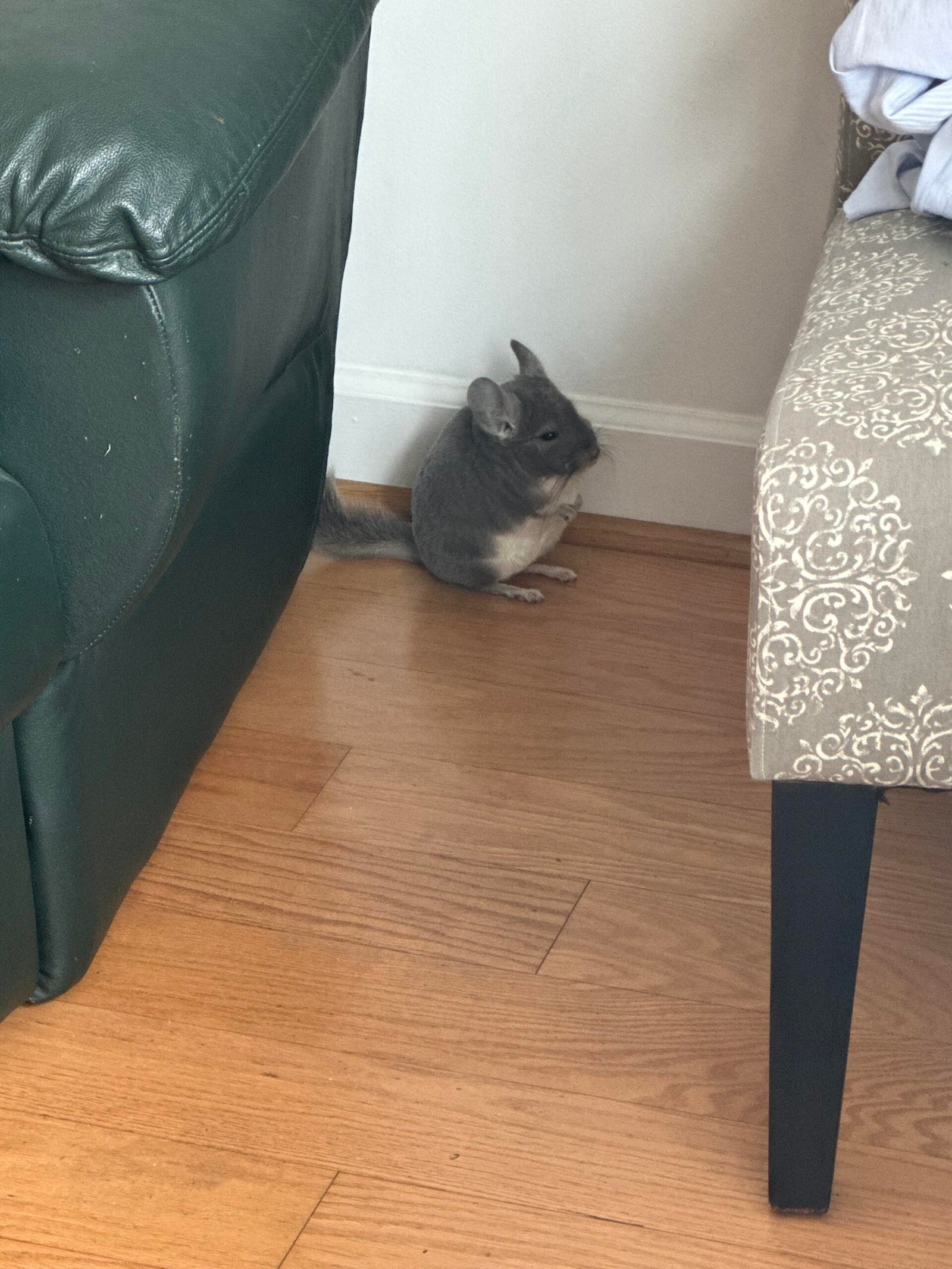
Have you ever wondered if your chinchilla feels lonely? These small, fluffy pets are full of personality, but they can’t tell you when they’re sad or bored.
If you want to make sure your chinchilla is happy and healthy, it’s important to spot the signs of loneliness early. You’ll learn exactly what to look for and how to help your furry friend feel loved and content. Keep reading—you might be surprised by what your chinchilla is trying to tell you!
Behavioral Changes
Behavioral changes are key signs that a chinchilla may be feeling lonely. These small animals show their feelings through how they act. Watching for changes can help you understand their needs better. Loneliness can affect their mood and health. Spotting these signs early helps you give proper care.
Reduced Activity
A lonely chinchilla may move less than usual. It might spend more time sitting still or hiding. Playfulness often drops when they feel alone. They might not run or jump around like before. This drop in energy shows they are unhappy or bored. Keep an eye on changes in their daily routine.
Increased Aggression
Loneliness can make chinchillas more aggressive. They might bite or nip more than usual. Growling or lunging at you can also happen. This behavior shows stress or frustration. They may act out because they want attention or company. Understanding this helps prevent harm and improve their comfort.
Vocal Signals
Chinchillas use sounds to express their feelings. Their vocal signals can tell you if they feel lonely. Listening closely helps you understand their needs better.
Unusual Noises
Chinchillas usually make soft, gentle sounds. Strange noises like loud squeaks or odd chirps may show stress. These unusual sounds can mean your chinchilla feels lonely or scared. Notice if these noises happen more than normal.
Frequent Calls
Lonely chinchillas often call out a lot. They make repeated soft calls to get attention. This behavior shows they want company or comfort. Pay attention to how often your chinchilla calls. More calls than usual often mean loneliness.
Eating Habits
Eating habits reveal much about a chinchilla’s emotional state. Changes in how much or how often they eat can signal loneliness. Chinchillas are social animals. They thrive with company and routine. When alone, their eating patterns might shift noticeably. Watch their food intake carefully. This helps spot loneliness early and take action.
Loss Of Appetite
A lonely chinchilla may eat less than usual. They might skip meals or nibble very little. This drop in appetite shows sadness or stress. Eating less can lead to weight loss and health problems. Lack of social interaction makes them withdraw. They lose interest in food and play. If your chinchilla stops eating, check their mood and environment.
Overeating
Some chinchillas eat more when feeling lonely. Eating becomes a way to cope with boredom or anxiety. They may snack constantly or eat faster than normal. Overeating can cause digestive issues and obesity. This behavior shows emotional discomfort. Provide toys and companionship to reduce stress eating. Monitor food portions and keep a feeding schedule.

Grooming Patterns
Grooming is a key sign of a chinchilla’s well-being. It shows how happy or lonely they feel. Changes in grooming habits often reveal their emotional state. Watch their grooming to know if they need more company or care.
Excessive Grooming
Lonely chinchillas may groom themselves too much. They might bite or pull their fur. This can cause bald spots or skin wounds. Too much grooming is a stress signal. It means the chinchilla feels anxious or bored.
Neglecting Grooming
Some lonely chinchillas stop grooming completely. Their fur looks dirty or matted. They may seem tired or weak. Ignoring grooming shows they might be sad or depressed. This is a warning sign for pet owners.
Social Interaction
Social interaction plays a big role in a chinchilla’s happiness. These small animals are naturally social. They enjoy spending time with their owners or other chinchillas. Watching how your chinchilla behaves around people and other pets can tell you a lot about its emotional state. Signs of loneliness often show up in how much your chinchilla wants to be near others or stays away.
Avoiding Contact
A lonely chinchilla may avoid contact with people. It might hide more than usual. It may not come out to play or eat. This avoidance can mean the chinchilla feels scared or sad. It might be trying to stay alone because it misses company. Notice if your chinchilla stops seeking attention or ignores you.
Clinging Behavior
Some chinchillas show loneliness by clinging to their owners. They may follow you around the room. They might jump on your lap or hold on tightly. This behavior shows they want more attention and love. A chinchilla that clings often needs more social interaction. It wants to feel safe and cared for.
Physical Signs
Physical signs can tell you a lot about your chinchilla’s feelings. Loneliness often affects their body and health. Watch for changes in how they look and behave. Noticing these signs early helps you care better for your pet.
Weight Fluctuations
Lonely chinchillas may eat less or more than usual. This change can cause quick weight loss or gain. Sudden weight shifts often mean stress or sadness. Regularly check your chinchilla’s weight to catch problems early. A healthy weight shows they feel safe and happy.
Dull Fur
Chinchillas have soft, shiny fur when healthy. Loneliness can make their fur look dull and rough. They might stop grooming themselves properly. Fur may also become patchy or thinner. Notice fur changes to spot loneliness or health problems. Good grooming shows your chinchilla feels well cared for.
Environmental Stress
Environmental stress can greatly affect a chinchilla’s mood and behavior. Changes around their living space can make them feel uneasy and lonely. Understanding these signs helps you create a better home for your pet.
Changes In Cage Setup
Chinchillas need a stable and familiar cage setup. Moving their food, toys, or hiding places often causes stress. Sudden changes make them anxious and withdrawn. Keeping their cage consistent helps them feel safe and less lonely.
Lack Of Stimulation
Chinchillas are active and curious animals. Without enough toys or activities, they get bored and lonely. Boredom can lead to restlessness or quiet sadness. Providing chew toys and exercise wheels keeps their mind busy and spirits high.
Mental Health Impact
Loneliness affects a chinchilla’s mental health deeply. These small animals need social interaction to stay happy. Without it, their mood and behavior change. Understanding these changes helps you care better for your pet.
Signs Of Anxiety
An anxious chinchilla may act restless or jumpy. It might hide more than usual. You could see excessive grooming or chewing on cage bars. These signs show stress and fear. Anxiety can harm their health if not addressed.
Signs Of Depression
Depressed chinchillas appear inactive and lose interest in play. They may eat less or stop grooming. Their eyes might look dull or tired. A sad chinchilla often avoids interaction. Recognizing these signs early helps improve their well-being.
Preventing Loneliness
Preventing loneliness in chinchillas is key to their happiness and health. These small pets need mental and social stimulation daily. Without it, they may show signs of stress or sadness. Owners must provide the right environment to keep them active and content.
Companionship Options
Chinchillas are social animals. They feel safer and happier with a friend. You can keep two chinchillas together if they get along well. Same-gender pairs often work best to avoid breeding. Introduce them slowly to build trust. Watch their behavior to ensure they bond. If a second chinchilla is not possible, spend more time interacting with your pet. Gentle handling and talking can help reduce loneliness.
Enrichment Activities
Chinchillas need daily activities to stay busy. Provide toys that they can chew and climb on. Wooden blocks, tunnels, and exercise wheels work well. Rotate toys to keep their interest. Offer safe treats during playtime for extra fun. Arrange play sessions outside the cage in a secure area. These activities keep their minds sharp and spirits high. Boredom often leads to loneliness and bad habits.


Frequently Asked Questions
How Can I Tell If My Chinchilla Feels Lonely?
Lonely chinchillas often become quiet, less active, or show signs of stress and boredom.
What Behaviors Show A Chinchilla Needs A Companion?
Look for pacing, excessive chewing, or constant vocal noises indicating loneliness.
Can A Single Chinchilla Live Happily Alone?
Chinchillas are social animals and usually do better with a companion for company.
How Often Do Chinchillas Need Social Interaction?
Daily interaction is important to keep chinchillas mentally and emotionally healthy.
What Signs Mean My Chinchilla Is Stressed From Loneliness?
Signs include loss of appetite, fur chewing, or hiding more than usual.
Should I Get A Second Chinchilla To Prevent Loneliness?
A second chinchilla can help, but proper introduction and bonding time are necessary.
How Can I Comfort A Lonely Chinchilla Without Another Pet?
Spend extra time playing, talking softly, and offering new toys or treats.
Does Loneliness Affect A Chinchilla’s Health?
Loneliness can lead to stress, which may weaken their immune system and cause illness.
Conclusion
Chinchillas are social animals that need company to stay happy. Watch their behavior closely for signs of loneliness. Quietness, lack of play, or constant chewing may signal a problem. Giving your chinchilla attention can improve its mood and health. Providing toys and a friend helps prevent loneliness.
Remember, a happy chinchilla means a joyful pet owner. Keep learning and caring for your furry friend every day. Small steps make a big difference in their well-being.







